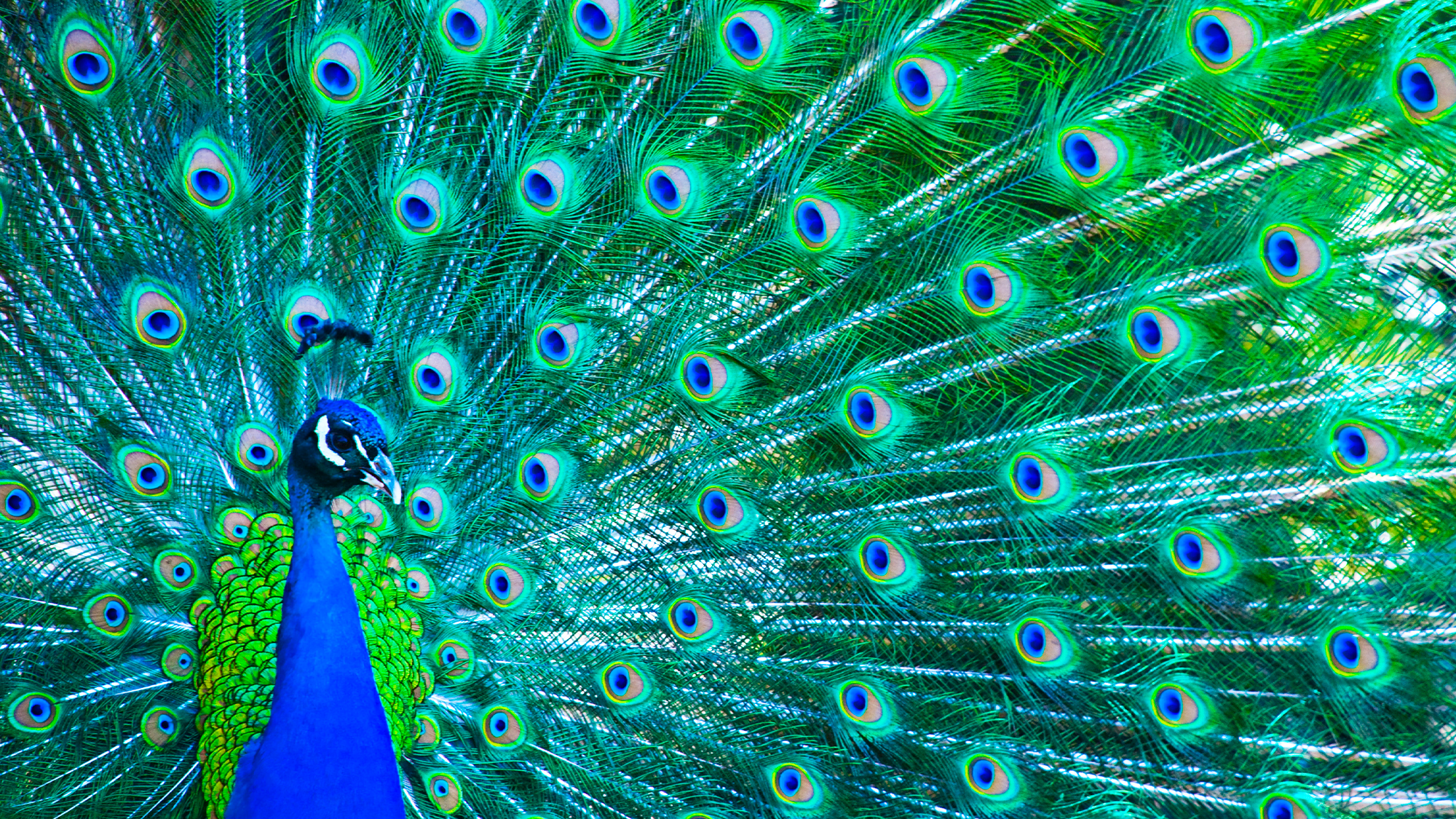

The people of Miami suburb Pinecrest, Florida are facing a particularly unique dilemma this summer—an exploding population of feral peacocks. The community of around 18,000 human residents are trying out a new way to keep the flock of colorful menaces under control: vasectomies.
[Related: Florida suburb is overrun by fluffy rabbits after breeder goes rogue.]
According to the Miami Herald, the birds that are native to India and Sri Lanka, were brought to the city to be exotic yard ornaments. Peacocks, by nature, are a very vocal force, primarily all in the name of finding a mate. The distinct calls are disturbing locals, particularly at sunrise and sunset, and their residents have also complained about slipping and falling on peacock poop. Many residents still do not want their feathered neighbors to be killed, and hope to co-exist with them in peace. The vasectomies are part of that strategy.
“Peacocks are bona fide polygamists,” veterinarian Don J. Harris told The New York Times. “We’re going to catch one peacock and probably stop seven females from reproducing. It’s going to have an exponential benefit.” Pinecrest hired Harris to perform the precise procedure on the male birds that display the bird’s signature plumage which also attracts potential mates.
In September, the town plans to take part in a pilot program in an attempt to curb the bird population through surgical vasectomies. The bold birth control plan was approved by the Miami-Dade County Commission in July.
“Most people see one peacock and they’re like, oh that’s nice, two—we’re talking about large numbers of birds that take up a lot of space and get very aggressive and protective of their nest,” District 7 Commissioner Raquel Regalado told NBC 6 South Florida.
The plan will involve trapping the male peacocks and sterilizing them. The dominant males will keep the already established pecking order and walk around town with their plumage, while the females will continue to lay eggs. The only real difference after the vasectomies is that the males won’t be able to fertilize the eggs, which should keep the population down.
Pinecrest plans to spend $7,500 a month on the vasectomies, and an additional $15,000 for medical gear from the county commissioner.
Iridescent peacocks like these have been a presence in some Miami neighborhoods for decades—with residents expressing mixed emotions about their feathery acquaintances. In 2001, when the peacock population was smaller, Miami-Dade County officially made killing or capturing them illegal, but homeowners could still remove the birds from their property without harming the peacocks.
[Related: Elephants once roamed Florida—and scientists just stumbled on a graveyard full of them.]
According to Zoo Miami communications director Ron Magill, South Florida’s balmy climate is very accommodating to many exotic species.
“When those animals get out here in South Florida, they’ve entered Club Med,” Magill told The New York Times. “This is paradise.”
The proof of this is all over the state. Southern Florida has become home to invasive to Burmese pythons that are wreaking havoc on the Everglades in the past decade. Further north in Gainesville, giant land snails up to 10 inches long have been eating their way through plants, stucco from houses, and even car tires while carrying a dangerous human parasite.
Arguably the most adorable invasion has come from the lionhead rabbits taking over a Fort Lauderdale suburb. Multiple rescue organizations are working to trap and rescue the rabbits that face dangers from cars and the Sunshine State’s extreme heat.
